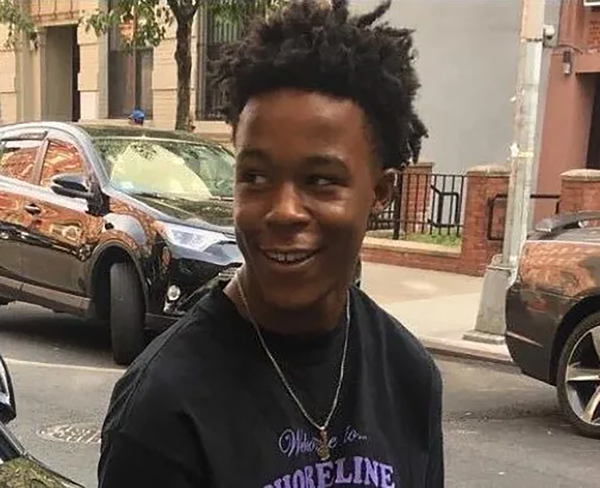
Messiah Nantwi Photo: FB Renny Smith
On March 1, 22-year-old Messiah Nantwi, imprisoned since June at Mid-State Correctional Facility near Utica in upstate New York, was beaten to death by prison guards. This prison is just across the street from Marcy Correctional Facility, where another Black prisoner, Robert Brooks, was savagely beaten to death by guards last December.
A New York Times reporter interviewed nine other prisoners—with seven willing to have their names used despite the risk of retaliation—who described the murder in graphic detail. They told how Nantwi had become distressed and went to the shower area where he could be heard crying. Several witnesses said Nantwi had stopped taking his psychiatric medications. He appeared to be having an argument with someone in authority, and refused to return to his cubicle. At that point a special group of guards—the “correctional emergency response team,” or CERT—was called, some coming with their batons already out.
A witness in a nearby cell said he could hear the clubs slamming Nantwi and that “He was screaming.” Another said Nantwi was begging the prison guards to stop, crying out, “I didn't do anything. You're really hurting me. Stop!” Several witnesses said the CERT guards weren't wearing body cameras or had them turned off, and that a sergeant turned his back so his bodycam couldn't record what they were doing.
When these killers were done, they dragged Nantwi, handcuffed and shackled, down the hall and a flight of stairs. One witness said Nantwi “was not recognizable.” Another heard Nantwi making gurgling noises, which he thought meant Nantwi couldn't breathe. Inmates, including Nantwi’s cellmate, were ordered to mop up the blood from the beating.
Within days NY Governor Hochul ordered 15 guards at the prison to be put on administrative leave while an investigation is carried out. She was no doubt responding to the coverage in the NY Times and elsewhere that included the accounts of the brutal beating of Nantwi and linked it with the earlier murder of Robert Brooks.
Guards Go on Strike
Two weeks before Messiah Nantwi's lynching, New York's prison guards started a statewide “wildcat” (unauthorized, illegal) strike. They said the strike was against unsafe working conditions. But what they really meant was that they were being prevented from threatening, and using, long-term solitary confinement as a form of torture against prisoners. In 2022, following years of protest, New York passed the HALT Solitary Act, which stands for Humane Alternatives to Long-Term Solitary Confinement. HALT limits solitary confinement to 15 consecutive days or 20 days over a 60-day period. Until HALT, solitary confinement had been inflicted on inmates for months, years, and even decades. Nearly two-thirds of New York prisoners in solitary are Black.1
It is widely suspected that the guards deliberately timed the strike to distract attention from the murder charges brought days before against six of the guards involved in the killing of Robert Brooks.
At one point, close to 90% of the guards were striking, affecting nearly all of the prisons. Hochul activated 7,000 National Guard troops to replace the guards in the prisons. It was National Guard troops inside the prison who called in the CERT goon squad when Nantwi wouldn't respond to their commands. Witnesses said that while the troops were not directly involved in the beating, they stood by watching while the murder was taking place.
During the guards’ strike, prisoners were forced to go without hot food, showers, medicine, mental health care, and visits from lawyers, family, and friends. Seven prisoners died in the first two weeks as a result, including two prisoners with serious health conditions who died at Auburn Correctional Facility when they didn’t get medical care in time. Two prisoners also died in Sing Sing, north of New York City: one hanged himself in his cell with no one there to save him; the other was found dead in his cell of as yet unknown cause.
The strike was settled March 10, with 10,000 of the 13,700 prison guards returning to work and 2,000 who refused to return being fired; 6,000 National Guard troops remain in the prisons.
And the settlement included indefinite suspension of the provisions of the HALT law limiting (but not eliminating) solitary confinement.
***
When Robert Brooks was lynched by prison guards in December, we wrote that these pigs acted like they were doing nothing wrong. They acted like they had total license to beat, kick, choke and terrorize this defenseless Black man—even as they all knew their body cameras were on. What does it tell you that these pigs acted like it was a normal day on the job? That such brutal savagery is their job! And what is the lesson that the thugs guarding the prison across the street learned from their colleagues? Be sure they’re not caught on bodycam when brutalizing a prisoner.
Bob Avakian on the role of the police.